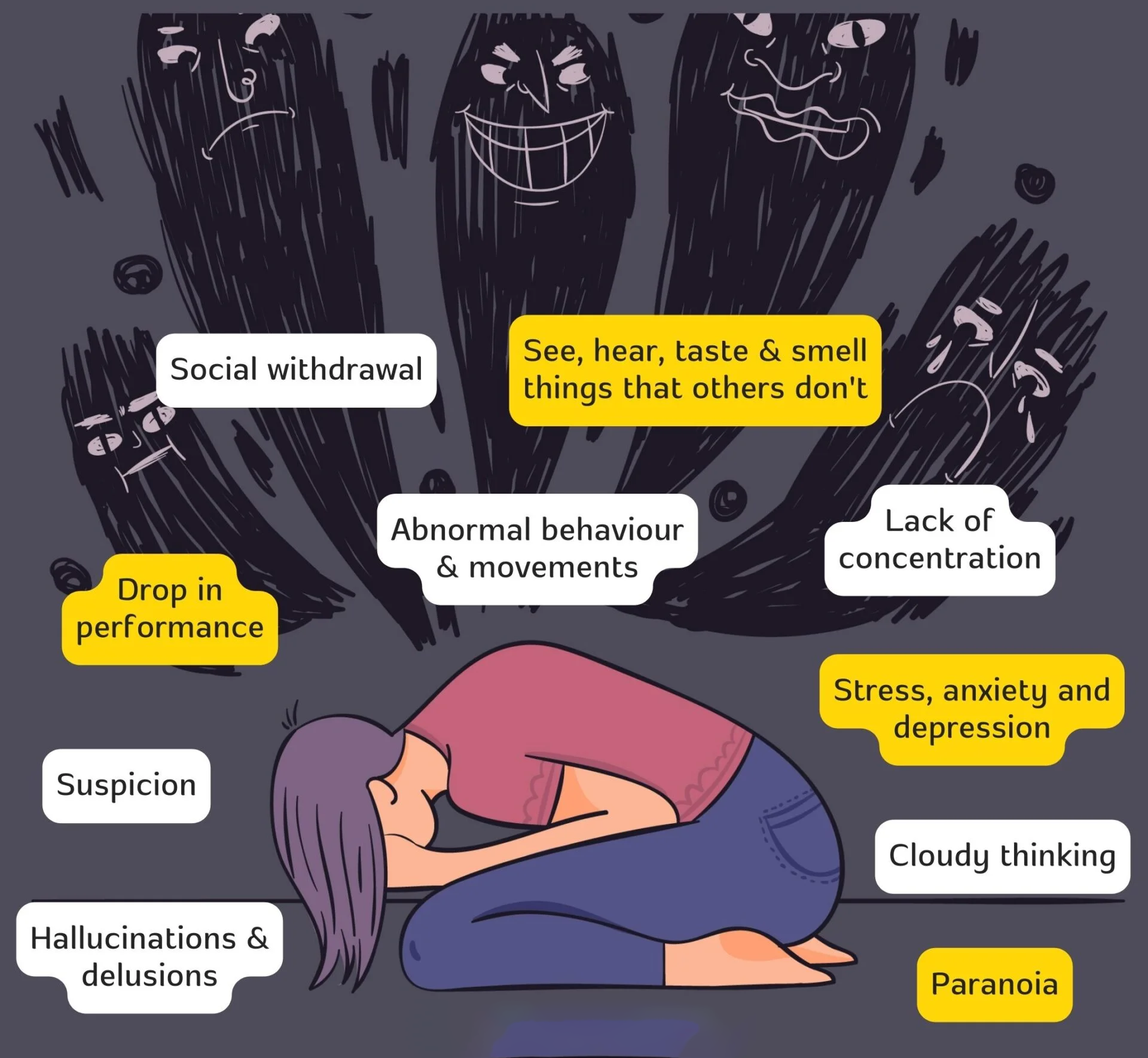Psychosis

What are the symptoms of psychosis?
The symptoms of psychosis can vary from person to person, but they may include:
- Hallucinations: Sensory experiences that are not real. They can be auditory (hearing voices), visual (seeing things that are not there), tactile (feeling things that are not there), gustatory (tasting things that are not there), or olfactory (smelling things that are not there).
- Delusions: False beliefs that are not based in reality. They can be about anything, but they are often about being persecuted, being special, or having special powers.
- Disorganized thinking: When a person's thoughts are not clear or logical. They may have difficulty following a conversation, or they may make up words or phrases that do not make sense.
- Changes in behavior: Withdrawal from social activities, changes in sleep or eating patterns, or increased risk-taking behavior.
- Changes in mood: Feeling depressed, anxious, or irritable.
What causes psychosis?
The exact cause of psychosis is not fully understood, but it is thought to be a combination of genetic and environmental factors. Some environmental factors that may contribute to psychosis include:
- Mental health disorders: Psychosis can be a symptom of a number of mental health disorders, including schizophrenia, bipolar disorder, and major depressive disorder.
- Drugs: Some drugs, such as amphetamines, cocaine, and LSD, can cause psychosis.
- Medical conditions: Some medical conditions, such as Alzheimer's disease, Parkinson's disease, and brain tumors, can also cause psychosis.
- Trauma: Psychosis can sometimes be triggered by a traumatic event.
How is psychosis treated?
Treatment for psychosis typically involves medication and therapy.
- Medication: Medications, such as antipsychotics, can help to reduce the symptoms of psychosis.
- Therapy: Therapy, such as cognitive-behavioral therapy (CBT), can help people with psychosis to learn how to manage their symptoms and live more functional lives.
What is the prognosis for psychosis?
The prognosis for psychosis varies from person to person. However, with treatment, most people with psychosis can live relatively normal lives.
What are some tips for managing psychosis?
- Talk to your doctor: If you are experiencing symptoms of psychosis, it is important to talk to your doctor. Your doctor can help you assess your symptoms and recommend the best treatment option for you.
- Educate yourself about psychosis: Learning more about psychosis can help you to understand your own symptoms and how to manage them. There are many resources available online and in libraries that can help you learn more about psychosis.
- Join a support group: There are many support groups available for people with psychosis. These groups can provide you with support and encouragement, and they can help you to connect with other people who understand what you are going through.
- Don't give up: If you are struggling with psychosis, it is important to remember that you are not alone. There are many effective treatments available, and with time and effort, you can overcome your symptoms.